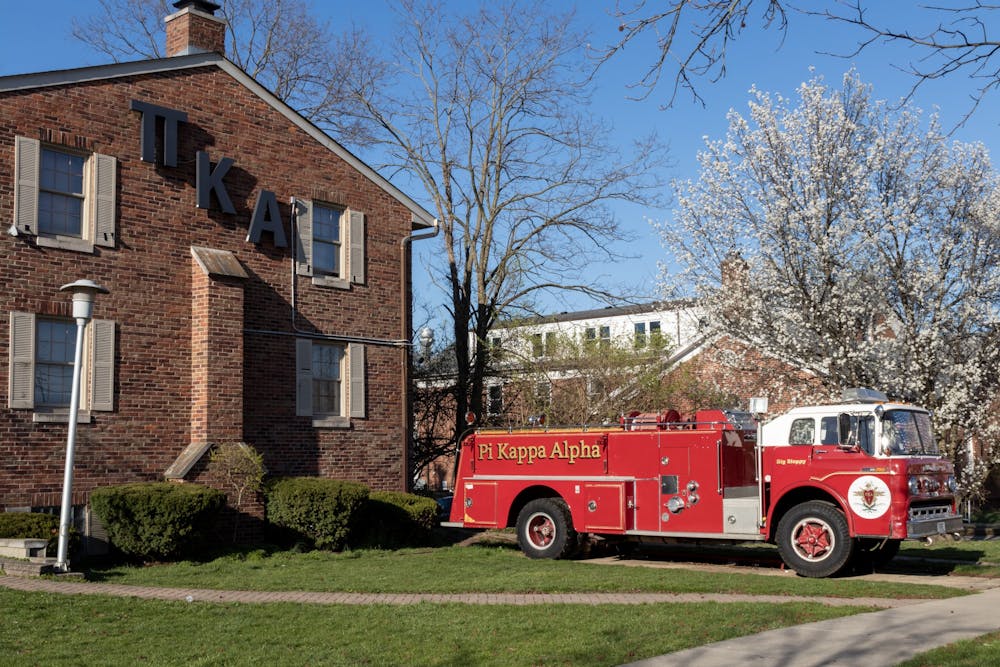One year ago, Miami University started to phase in educational training for new students on hazing prevention. This year was the first Greek Life recruitment experience with the implemented training. Despite its purpose, it had little effect on the number of investigations into hazing claims.
Kim Vance, director of the Center for Student Engagement, Activities, and Leadership, said three fraternities were summarily suspended for allegations of hazing this semester, but being summarily suspended does not mean they are guilty of hazing.
According to the Code of Student Conduct, the Dean of Students will issue a summary suspension to any student organization when there is a reasonable cause that the organization’s activity “poses an immediate or significant risk of substantial harm to the safety or security of themselves, others, or to property.” Although a summary suspension can look different depending on the Dean’s discretion, organizations are usually suspended from University-related activities or registered student organization activities.
Maria Vitullo, director of the Office of Community Standards (OCS), said the spring semester is the busiest time of the year for hazing reports due to Greek Life recruitment, but this year is not different from previous years.
“I think what we’re seeing this year is pretty consistent with what we have seen last year,” Vitullo said. “There does not seem to be a huge increase in reports or investigations this year.”
Vitullo said there were 17 incident reports of hazing this year. Eight of those 17 reports have yielded formal investigations.
“Seventeen sounds like a big number, but it’s important to understand that now people are educated about hazing and about Collin’s Law,” Vitullo said.
Signed into law in July 2021, Collin’s Law is Ohio’s Anti-Hazing Act that requires a statewide curriculum on hazing for college students and creates harsher punishments for hazing. Miami began training transfer students on the law last spring and incorporated it into the orientation modules this year for first-year students.
“As of this spring, we have a lot of humans, students included, that have received very detailed information on the requirements of the law, what Miami’s hazing prevention policy is, how to report and be in compliance with the law,” Vance said.
But despite an increase in education and awareness, OCS has not seen a decrease in hazing reports. Vance thinks the stagnant number of investigations is related to educational awareness.
“People now know about the law and where they should report things and why they should report things,” Vance said.
Vance said more people are reporting situations they think could be related to hazing but are later found invalid. Of the 17 reports regarding hazing this year, nine were not investigated.
Enjoy what you're reading?
Signup for our newsletter
“The reason why only half of them have resulted in true investigations is because many times when we look into them, we determine that it doesn’t have anything to do with hazing,” Vitullo said.
Vitullo said the OCS investigators determine if a scenario is hazing through proof such as documents, reports, video evidence, witness interviews and witness statements. Scenarios also have to align with the university’s definition of hazing, found in the Code of Student Conduct.
Although hazing can happen in any organization, Vitullo said the majority of reports this year were related to Greek Life. Pi Kappa Alpha and Alpha Sigma Phi were two of the fraternities summarily suspended for allegations of hazing.
OCS received anonymous reports regarding hazing within the fraternities. Because the alleged situation posed a threat to student safety and well-being, the Office of the Dean of Students placed the chapters on summary suspension.
Patrick Hang, the vice president of conduct for the Interfraternity Council, confirmed that both fraternities were not found guilty of the allegations.
“Both PIKE and Alpha Sig are out of OCS now … nothing came up in their investigation,” Hang said. “They were cleared of everything that they were accused of.”
Vance said all Greek Life reports of hazing this year were submitted anonymously. Even though the reports are anonymous, OCS still conducts a thorough investigation.

Even though the numbers of hazing allegations have remained comparable to previous years, Hang said one of the benefits of Collin’s Law is being more comfortable with talking about the uncomfortable.
“We start by contacting the organization's leadership and asking them about their new member process and getting a list of their new members who may have been impacted by these allegations,” Vitullo said.
Vance said more fraternities are placed on summary suspensions than sororities due to allegations of hazing, but Hang said it is important to remember that hazing isn’t exclusive to one organization.
“I think that there’s a history maybe that exists with fraternities on campus, but I wouldn’t say that it’s necessarily a fraternity-exclusive situation,” Hang said.
Even though the numbers of hazing allegations have remained comparable to previous years, Hang said one of the benefits of Collin’s Law is being more comfortable with talking about the uncomfortable.
“[Hazing] is a widely talked about subject, and I feel like we’ve made some good progress in that,” Hang said. “I feel a lot better about it this year than I did last year, which may be a result of Collin’s Law. People are starting to gain an appreciation for what [Collin’s Law] means.”
To report a possible hazing incident, visit the Office of Community Standards to complete the submission form.




